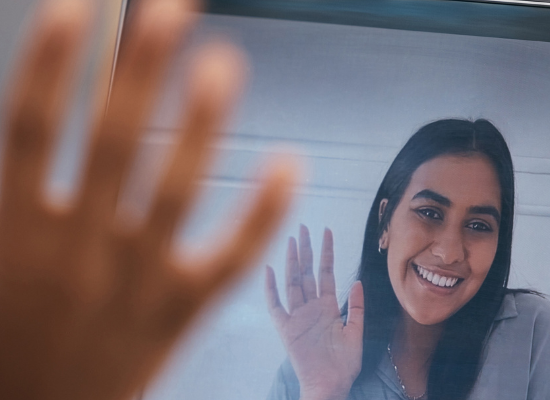
Hanson is Canopy Root’s co-founder and executive director. Crouch-Dodson leads strategic partnerships for Canopy Roots.
On June 16, 2023, the United States Department of Justice released its findings following a two-year federal civil rights investigation into the City of Minneapolis and Minneapolis Police Department after the murder of George Floyd by police officer Derek Chauvin in May 2020. The 89-page report revealed the Justice Department’s findings that the city and police department “engage in a pattern or practice of conduct in violation of the U.S. Constitution and federal law.” Specifically, the DOJ found that the city and police department “discriminate against people with behavioral health disabilities when responding to calls for assistance.”
Bias and discrimination permeate our modern-day policing for marginalized and oppressed communities, including Black, LGBTQ+, Latinx and people experiencing homelessness. Mental well-being intersects all these oppressed communities and policing should no longer be the answer. Building communities where people living with mental health illnesses feel safe and supported requires strong partnerships with community and local agencies.
The effects of trauma and unsupported mental health issues have a lasting impact on people of all ages. In the United States, 1 in 20 adults experiences serious mental illness each year, 1 in 4 police encounters involving an individual with serious mental illness are fatal and 1 in 4 adults lack a regular place to access health care.
In Minnesota, where we live and work, inadequate access to mental health resources impacts youth, families and communities. In 2021, one in four Minnesotans experiencing homelessness live with a serious mental illness, 59.3% of Minnesota youth (ages 12-17) who live with depression did not receive any care in the past year and 739 Minnesotans were lost to suicide.
Getting support during a mental health crisis should not be complicated. Instead, mental health crises should be treated like any other emergency — with trained professionals dispatched via 911.
In 2019, City of Minneapolis leaders asked themselves: How might we redesign a response to mental health crisis 911 calls without law enforcement? At the time, the sole responder for 911 calls related to mental health emergencies was handled by Minneapolis police. Often, police officers felt ill-equipped to resolve the situations, mainly relying on involuntary hospitalizations or arresting the person. These tactics ignore any underlying issues and perpetuate the criminalization of mental illnesses in the U.S.
The city began researching various behavioral health crisis alternatives locally and nationally. A spotlight was placed on Minneapolis after the murder of George Floyd by Minneapolis police officer Derek Chauvin in May 2020. What was seen as a local project became a global social movement for public safety reform.
Over the next two years, Minneapolis tasked its Office of Performance and Innovation to research alternative behavioral health response programs nationwide. They learned that for decades, municipalities have tried adding social workers or mental health professionals into a support role for police officers. This co-response model has had little impact on the number of police-related deaths or injuries, given they still operate under police protocols. They continued to give a police solution to a mental health issue, thereby perpetuating the criminalization of mental illness.
In the summer of 2020, the city conducted a citywide engagement survey to better understand the experiences of people living with mental illnesses when interacting with the Minneapolis public safety system. The results of the engagement efforts were clear — the current options and protocols were failing to meet the community’s needs.
A portfolio of pilot programs for various public safety concerns was presented and adopted by the City Council in November 2020, including creating a new first responder program for mental health emergencies. The city and the community codesigned the Behavioral Crisis Response team, an unarmed, trauma-informed and culturally affirming pilot program.
Canopy Roots — a majority Black and woman-owned mental health practice in Minnesota — secured the contract with Minneapolis to operate the inaugural behavioral crisis response program and gained local and national recognition overnight.
With the pilot’s launch in December 2021, Minneapolis 911 dispatch now has four first responders, including fire, police and emergency medical services. Diverting behavioral crisis calls away from police allows law enforcement to handle higher-threat situations that are more appropriate for their training. This value-add for 911 dispatch has reimagined how calls for service are addressed and ensures each call gets the needed response.
Unlike police, our behavioral crisis responders are entirely unarmed, wear plain clothing and do not use sirens. Also, all crisis responders are highly trained mental health professionals with diverse backgrounds and identities, allowing our services to be delivered in a culturally affirming manner. We hire mental health practitioners with lived experience.
When providing mental health services to recipients in Minneapolis, our crisis responders use a set of cultural affirmation principles to guide their approach to crisis response:
-
- Use cultural humility (the practice of acknowledging the limitations of our understanding of another culture) and cultural responsiveness (the practice of continuously engaging in learning and listening to those we serve) in order to serve individuals better and build understanding.
- Actively resist centering white American culture as the default in our society and mental health practice. We do this by actively working against internalized white supremacy, individualizing our practice and meeting each person from the standpoint of their own culture, tradition and needs.
- Engage in difficult but necessary conversations about the impact of race and culture in our policies, business and service delivery.
- Consider community, historical and political context when considering our approach to working with recipients, community members and first-response colleagues.
When supporting someone in crisis, behavioral crisis responders provide trauma-informed emotional support, crisis de-escalation, psychoeducation, risk assessments and safety planning and resource connection, including transportation.
The results speak for themselves. From Dec 2021 to 2022, we responded to over 8,000 calls with zero injuries to recipients or responders. That’s nearly double the regular rate of behavioral crisis calls handled in a year by Minneapolis Police.
A clear recommendation from the DOJ report released last week was the need to expand the Behavioral Crisis Response “to ensure that the city can provide services tailored to residents with diverse behavioral health needs.” According to the report, Minneapolis Mayor Jacob Frey said having “‘someone show up without a gun and with the right skillset’ is critical.”
Establishing the Behavioral Crisis Response unit had its challenges. We initially received opposition from other first responders. In Dec 2021, the political landscape of Minneapolis around public safety was still intense with numerous calls from the community to add a new kind of responder that would not be a part of the police department. There was also widespread concern about our commitment to remain unarmed. We’re grateful to have alleviated those concerns. Today, the Behavioral Crisis Response has a supportive working relationship with all first responder colleagues to ensure a coordinated care response.
Hiring for the program was intentionally done in a phased approach. At the launch of the Behavioral Crisis Response in December 2021, we operated citywide at limited hours based on 911 call data. Historically, the most difficult shifts for hiring staff have been weekends and overnight. We’re excited to announce that by the end of June 2023, we will reach full staffing coverage to operate 24/7 services.
An additional hurdle included reliable and available vehicles. In 2021, the city purchased three new transit cargo vans but delivery was severely delayed due to supply-chain issues. While we waited for delivery, Canopy Roots utilized worn down city-owned fleet vehicles that would occasionally need to be repaired, which ultimately impacted Behavioral Crisis Response service hours. Thankfully, we have received three new Crisis Response vans last week fully outfitted to meet program needs. We do not anticipate any further interruptions to service hours due to poor quality vehicles.
Looking ahead, we support the DOJ’s recommendation to “Expand BCR’s Capacity, Training, and Coordination” (page 86 of the report). With adequate funding allocated to the Behavioral Crisis Response unit, Canopy Roots is prepared to expand our service to meet the behavioral health needs of the Minneapolis community. We’re ready to build upon our collaborative relationship with the city to establish the standard of mental health first response via 911.
This is only the beginning. Last month, the city announced the expansion of the civilian response units from two to three vans operating 24/7 citywide, dramatically increasing our Behavioral Crisis Response’s workforce and more than doubling the city’s contract budget with Canopy Roots by the end of 2024.
Looking ahead, we are eager to collaborate with local and national partners who share our approach to healing and coping informed by collective knowledge and resources, identifying natural and cultural strengths, and affirming dignity above all else.
Candace Hanson is Canopy Roots’ co-founder and executive director. As a licensed professional clinical counselor, she brings years of experience working with a wide range of clients, specifically adolescents and young adults dealing with depression, anxiety, trauma or personality disorders and individuals navigating life transitions. Candace cofounded Canopy Roots in 2021 with her brother Cyrus Hanson and friend Taylor Shultz alongside their sister-organization Canopy Mental Health and Consulting, which they created in response to the lack of BIPOC mental health providers in the Twin Cities.
Taylor Crouch-Dodson leads strategic partnerships for Canopy Roots. With a master’s degree in public policy from the University of Minnesota’s Humphrey School of Public Affairs, Taylor worked for the City of Minneapolis for five years. First, in the civil rights office, where his team investigated discrimination cases. Then, he joined the Office of Performance and Innovation, where he supported the creation of the city’s portfolio of unarmed public safety pilots. His expertise in government relations, evaluation, facilitation and strategic planning are used in developing public-private partnerships for Canopy Roots as they expand to new service areas locally and nationally.








